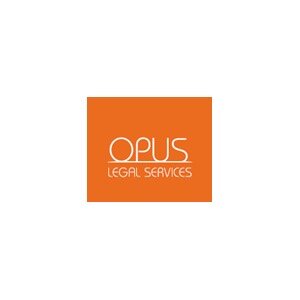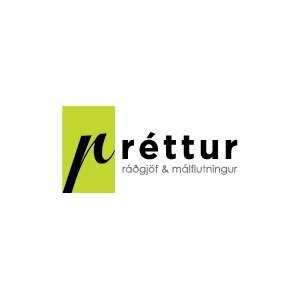Best Commercial Real Estate Lawyers in Iceland
Share your needs with us, get contacted by law firms.
Free. Takes 2 min.
Free Guide to Hiring a Real Estate Lawyer
Or refine your search by selecting a city:
List of the best lawyers in Iceland
About Commercial Real Estate Law in Iceland
Commercial real estate in Iceland involves transactions, management, and development of properties utilized for business purposes. Due to Iceland's unique geographic and economic environment, the commercial real estate sector requires astute legal oversight to manage complexities related to land use, zoning, environmental regulations, and property rights. The landscape of commercial real estate law ensures compliance with both national and local legislation while fostering sustainable development.
Why You May Need a Lawyer
Engaging a lawyer can be crucial in various situations related to commercial real estate in Iceland. A lawyer can help navigate complex transactions, manage lease agreements, and resolve disputes. Whether you're purchasing property, handling zoning issues, dealing with construction contracts, or encountering tenant disputes, legal expertise ensures that your rights are protected and that transactions are conducted smoothly and legally.
Local Laws Overview
The legal framework governing commercial real estate in Iceland includes several key components:
- Property Ownership and Rights: Comprehensive understanding of property rights and ownership, including leasehold and freehold properties.
- Zoning and Use Regulations: Regulations determining land use that align with municipal plans to ensure sustainable urban development.
- Environmental Regulations: Compliance with environmental laws to prevent and mitigate pollution and adhere to conservation efforts.
- Taxation: Knowledge of property taxes and fees that impact commercial real estate investments.
- Tenant and Landlord Laws: Guidelines ruling the relationship between landlords and tenants to prevent disputes and ensure fair practice.
Frequently Asked Questions
What is the process for buying commercial property in Iceland?
The process includes finding suitable property, conducting due diligence, negotiating terms, drafting a purchase agreement, and completing the transaction through a legally binding contract.
Are there restrictions on foreign ownership of commercial real estate in Iceland?
Yes, there are specific restrictions on foreign ownership, particularly regarding land and natural resources. Foreign investors may need to obtain government approval.
What taxes are applicable to commercial real estate transactions?
Taxes include stamp duties, capital gains tax, and property taxes. It's essential to consult with a legal expert to understand the implications and ensure compliance.
How are lease agreements regulated?
Lease agreements are governed by local laws that stipulate terms and conditions, such as duration, rent changes, and termination clauses, ensuring protection for both parties.
What environmental considerations are necessary for commercial development?
Considerations include environmental impact assessments, adherence to local and national conservation laws, and management of natural resources.
How can disputes in commercial real estate be resolved?
Disputes can be resolved through negotiation, mediation, arbitration, or litigation, depending on the agreement between parties involved.
What is the role of a real estate agent in Iceland?
A real estate agent facilitates transactions by marketing properties, negotiating deals, and providing market insights, but cannot provide legal advice.
Are there specific construction laws I should be aware of?
Yes, construction projects must comply with building codes, safety standards, and zoning regulations specific to Icelandic law.
Can commercial properties be converted to residential use?
Conversion is possible but requires compliance with zoning laws and obtaining the necessary permits and approvals from local authorities.
What is the impact of zoning laws on commercial real estate?
Zoning laws dictate the permissible use of land within specific areas; understanding these laws is vital for development and investment strategies.
Additional Resources
For more information and assistance, the following resources may be helpful:
- The Icelandic Real Estate Association for market data and professional guidance.
- The National Planning Agency for information on zoning laws and environmental regulations.
- The Icelandic Bar Association to find qualified legal professionals specializing in real estate law.
- Local municipalities for specific regulations pertaining to different regions within Iceland.
Next Steps
If you need legal assistance in commercial real estate, consider the following steps:
- Research: Gather information about your specific legal needs and potential challenges.
- Consultation: Schedule a consultation with a specialized real estate lawyer to gain insights and understand your legal options.
- Documentation: Compile all relevant documents related to your real estate transaction or issue.
- Representation: Engage a lawyer to represent you in negotiations, drafting contracts, and resolving disputes.
- Compliance: Ensure ongoing compliance with Icelandic real estate laws and regulations.
Lawzana helps you find the best lawyers and law firms in Iceland through a curated and pre-screened list of qualified legal professionals. Our platform offers rankings and detailed profiles of attorneys and law firms, allowing you to compare based on practice areas, including Commercial Real Estate, experience, and client feedback.
Each profile includes a description of the firm's areas of practice, client reviews, team members and partners, year of establishment, spoken languages, office locations, contact information, social media presence, and any published articles or resources. Most firms on our platform speak English and are experienced in both local and international legal matters.
Get a quote from top-rated law firms in Iceland — quickly, securely, and without unnecessary hassle.
Disclaimer:
The information provided on this page is for general informational purposes only and does not constitute legal advice. While we strive to ensure the accuracy and relevance of the content, legal information may change over time, and interpretations of the law can vary. You should always consult with a qualified legal professional for advice specific to your situation.
We disclaim all liability for actions taken or not taken based on the content of this page. If you believe any information is incorrect or outdated, please contact us, and we will review and update it where appropriate.
Browse commercial real estate law firms by city in Iceland
Refine your search by selecting a city.













